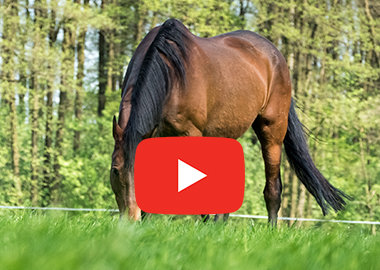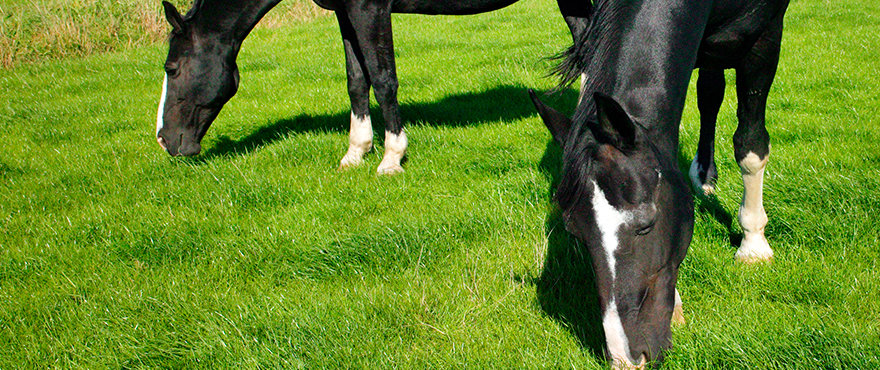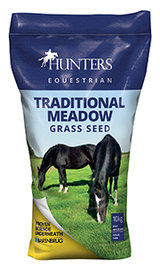
Formulated to recreate the nutritional characteristics of a natural habitat.
The mixture is ryegrass free and uses species with a less aggressive growth habit to aid diversity.
- Swards sown with this mixture are likely to be lower in fructans than a ryegrass sward, reducing the risk of laminitis
- The healthiest pasture for your horse
- Helps prevent laminitis
- Effective fibre in your horse grass
- The optimum grass seed for your horse meadow
- Good horse pasture that can be effectively managed
Sowing Advice
- Checking fertility status - especially the pH (soil pH needs to be 6-6.5 for grass)
- Check for, and correct any soil compaction
- Sow into a fine, firm seedbed with adequate moisture levels
- Seed bed fertiliser can be beneficial - low Nitrogen, apply good rates of potash and phosphate (depending on soil fertility) to aid establishment
When to sow
- Grass seed can be sown at anytime from April to September, ideally when the soil is moist or when rain is forecast and the weather is frost free. If possible keep the horses off as long as possible to enable establishment
Re-seeding
Sow at a rate of at least 15kg per acre into a fine tilth seed bed covered by lightly harrowing and then roll to produce a firm seed bed.
Patching
- Loosen soil on bare patches by raking or grass harrows
- Scatter grass seed at the rate of 10kg per acre if using a spreader or at a rate of 10 grams (2 tablespoons) per square metre by hand
- Cover seed by lightly raking or harrowing and then firm by rolling or walking over




